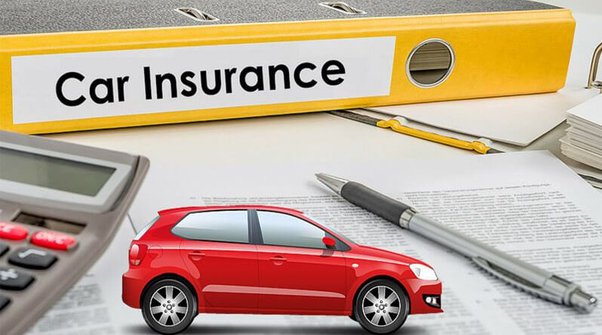Car insurance shopping can be daunting and daunting for first-time buyers. Still, Bankrate’s editorial team has some helpful advice to assist newcomers find an appropriate policy at a great price. Be familiar with state requirements, coverage limits, discounts, basic insurance terms like bodily injury liability coverage, and comprehensive and collision policies.
1. Assess Your Coverage Needs
Keep in mind that there is no universal policy when it comes to car insurance; your coverage needs should suit your unique situation and lifestyle. Evaluate your financial safety net and any potential risk factors like theft, vandalism and weather conditions to select an adequate coverage policy with an appropriate deductible amount. Taking this step will allow you to identify an adequate solution and select appropriate coverage levels. Consider increasing your deductible to save on premiums; however, only do this if it will still allow you to comfortably afford this in case of an accident.
2. Review Your Policy
Regular policy reviews provide peace of mind that your coverage still aligns with your needs and that you don’t pay for coverage that no longer makes sense, especially after significant life changes such as marriage, purchasing a home or sending children off to college. Even small changes such as switching jobs or where you park can affect your premiums, so meeting with an agent to review can ensure you have adequate coverage without overpaying – plus it could open up opportunities for discounts!
3. Look for Discounts
Shopping for car insurance for the first time can be intimidating. From high quotes and unfamiliar policy language to steep quotes and unfamiliar premium amounts, it is essential that you remain calm and carefully consider all your options before making a decision. Some insurance providers provide discounts to drivers with excellent credit, safe driving records and certain features like anti-theft devices. Others may provide usage-based programs which lower rates if you drive less than expected each year. Other strategies for saving include bundling policies, paying your premium in full and setting up automatic payments. It is also worth looking out for special discounts available to students, military personnel and alumni groups.
4. Consider Your Deductible
Be it your first time purchasing car insurance or just reviewing existing policy, it is always a wise move to compare rates. Don’t wait until renewal time; getting multiple quotes from different insurers will help you identify the ideal rate for you. Consider also your deductible: raising it typically results in lower premiums. Be sure to discuss this matter with your agent as they can also review all coverages and monetary limits that exist on the policy.
5. Review the Policy Term
No matter your driving experience or level, it’s essential to keep your insurance provider up-to-date so they can provide the appropriate coverage for you. For instance, when purchasing a new vehicle and looking to ensure full compensation in case of accident or theft, new-vehicle replacement coverage could provide peace of mind – protecting both your investment and financial future in one convenient step. Regular reviews also enable policyholders to identify any gaps and address them early before it becomes an issue later down the line.
6. Keep Your Insurance Provider Updated
If you’re planning on switching insurance providers, try switching before your renewal date to avoid cancellation fees and ensure your new policy goes into effect immediately without gaps in coverage. Before canceling your old policy, be sure to inform your lender of the change. Most lenders require car insurance as part of your loan or lease agreement; any gaps could have serious repercussions including repossession. Keep a copy of your current declaration page on hand for showing to your new provider.
7. Review Your Coverage Limits
Your insurance policy contains essential details, including coverage limits and deductibles. You must be informed about this information so you are adequately protected if a claim arises. As a rule of thumb, it’s best to purchase coverage that meets both state minimum requirements as well as an extra amount for uninsured motorist bodily injury coverage. This extra protection will help lower financial risk and potentially avoid out-of-pocket expenses. Coverage limit details can be found on your policy declaration page; reviewing them thoroughly may take some time but is essential when purchasing insurance for the first time.
8. Review Your Policy’s Exclusions and Limits
No matter whether you are purchasing new car insurance or reviewing an existing policy, understanding your coverages and limits is vital to making informed decisions that protect against financial setbacks. Before filing a claim, review your policy’s declaration page carefully. This will provide a snapshot of its essential details such as insured driver(s), vehicle(s), primary coverage limits, deductible amounts and exclusions that must be carefully considered when filing an insurance claim – knowledge will save time and money in the long run!
9. Review Your Policy’s Claims Process
Purchase of a car can be exciting, yet comes with significant responsibilities – one being finding appropriate auto insurance coverage. However, understanding your policy’s claims process can be challenging. Many factors can contribute to how long it takes for your claim to be processed – deductibles, state regulations and internal procedures of insurers all play an integral part. Being mindful of these items will make the claims process less complex – read your declarations page (also called “dec(k) page”) carefully!
10. Ask Questions
Car insurance can be an intricate product to navigate, and finding the appropriate policy requires more than simply finding the lowest price. By asking relevant questions and getting answers that suit your individual needs and provide peace of mind. Consider all factors when setting rates. Ask about other drivers in your household as this will have an impactful on rates, while considering where you live – certain areas tend to see more claims than others. One effective question to pose to potential auto policy buyers is, “What is your priority for auto policy?” This question encourages them to think beyond price and emphasizes that adequate coverage matters most.

